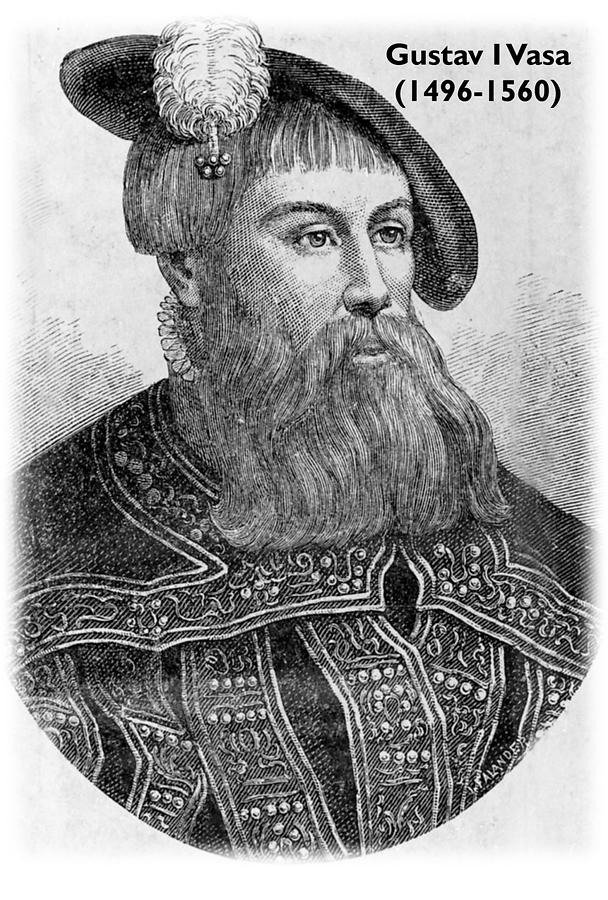Gustav Vasa#

Gustav Vasa, 2012, © Gerhard Huber, under CC BY-NC 4.0 +Edu
Sweden’s most famous king, Gustav Vasa, was also responsible for building Uppsala’s town castle. In 1523, he liberated Sweden from the Danish rule and introduced a heritable succession, and ruled the country as king for 37 years. Being a protestant he broke the power of the Catholic Church and made himself head of the country’s church and benefited from the church’s vast incomes. With these funds he was able to pay the debts he owed the Hanse for supporting his struggle for independence, he also formed a new army and perfected the system of taxation. He also ruthlessly crushed several peasants’ revolts. During his reign Sweden became a proper nation. Gustav Vasa also acted as a patron of the arts: he had several castles and fortresses built and founded the first orchestra of the modern age, the Royal Swedish Orchestra, which still functions as the orchestra for the Royal Swedish Opera.
Schwedens berühmtester König, Gustav Vasa, zeichnet auch für die Errichtung des Uppsala Stadtschlosses verantwortlich. Er befreite 1523 Schweden vom dänischen Joch, führte die erbliche Thronfolge ein und regierte das Land 37 Jahre lang als König. Als Protestant brach er die große Macht der katholischen Kirche, machte sich selbst zu deren Oberhaupt und zum Nutznießer der riesigen Kircheneinkünfte. Er tilgte damit Schulden bei der Hanse, die ihn im Unabhängigkeitskampf unterstützt hatte, baute eine Armee auf und perfektionierte das Steuersystem. Bauernaufstände schlug er rücksichtslos nieder. In seiner Regentschaft wurde Schweden zur echten Nation. Auch als Kunstmäzen tat sich Gustav Vasa hervor: er ließ zahlreiche Burgen und Schlösser errichten und gründete das erste Orchester der Neuzeit, die königliche Hofkapelle, die bis heute als Orchester der königlich-schwedischen Nationaloper besteht.